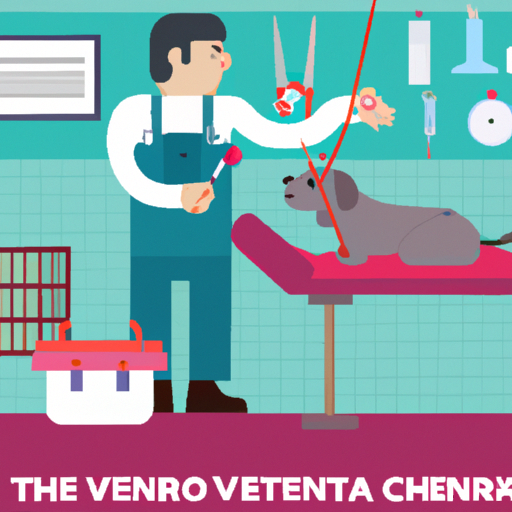Introduction
Hello there, dedicated caregiver. Let’s delve into the world of canine health today, specifically focusing on a common surgical procedure – neutering. This article will guide you through the process, giving you a clearer understanding of what happens when our furry friends undergo this procedure.
The Neutering Procedure
Your dog is in good hands. Veterinary professionals perform neutering, which involves removing the testicles in male dogs to prevent reproduction and reduce certain behavioral issues. The process is also known as castration. Here’s a step-by-step breakdown:
- Pre-surgery examination: Your vet will conduct a thorough check-up to ensure your dog is healthy enough for the procedure.
- Anesthesia: Your dog is then put under general anesthesia, so they will not feel any pain during the procedure.
- The surgery: The vet makes an incision in front of the scrotum, then the testicles are removed.
- Post-surgery: The incision is closed with stitches, and your dog is monitored as the anesthesia wears off.
Recovery and Aftercare
Your role as a caregiver becomes even more vital now. After the surgery, you need to ensure your dog recovers smoothly. Here are some points to guide you:
- Prevent your dog from licking or biting the surgery area.
- Limit physical activities for the first few days post-surgery.
- Check the incision daily to ensure it’s healing properly.
- Follow your vet’s advice on post-surgery medication and diet.
The Benefits of Neutering
Neutering isn’t just about preventing unwanted litters. There are several other benefits, outlined in the table below:
| Benefits | Description |
|---|---|
| Behavioural | Reduces aggressive behaviours and tendencies to roam. |
| Health | Decreases risk of testicular cancer and prostate problems. |
| Social | Helps control the pet population. |
Potential Risks
Every medical procedure has its risks, and neutering is no exception. Complications are rare but can include:
- Reaction to anesthesia.
- Infection at the surgical site.
- Bleeding or swelling post-surgery.
Be sure to discuss these risks with your vet before making a decision.
FAQs
Q: At what age can a dog be neutered?
A: Dogs can be neutered as young as 2 months old, but the typical age is between 6 and 9 months.
Q: Do neutered dogs gain weight?
A: Some dogs may gain weight after neutering, but a balanced diet and regular exercise can control this.
Q: Will neutering change my dog’s personality?
A: The procedure may reduce certain behaviours such as aggression, but it will not change your dog’s fundamental personality.
Remember, you are a vital part of your dog’s wellbeing. Continue asking questions, continue learning, and keep providing that loving care your furry friend needs.



